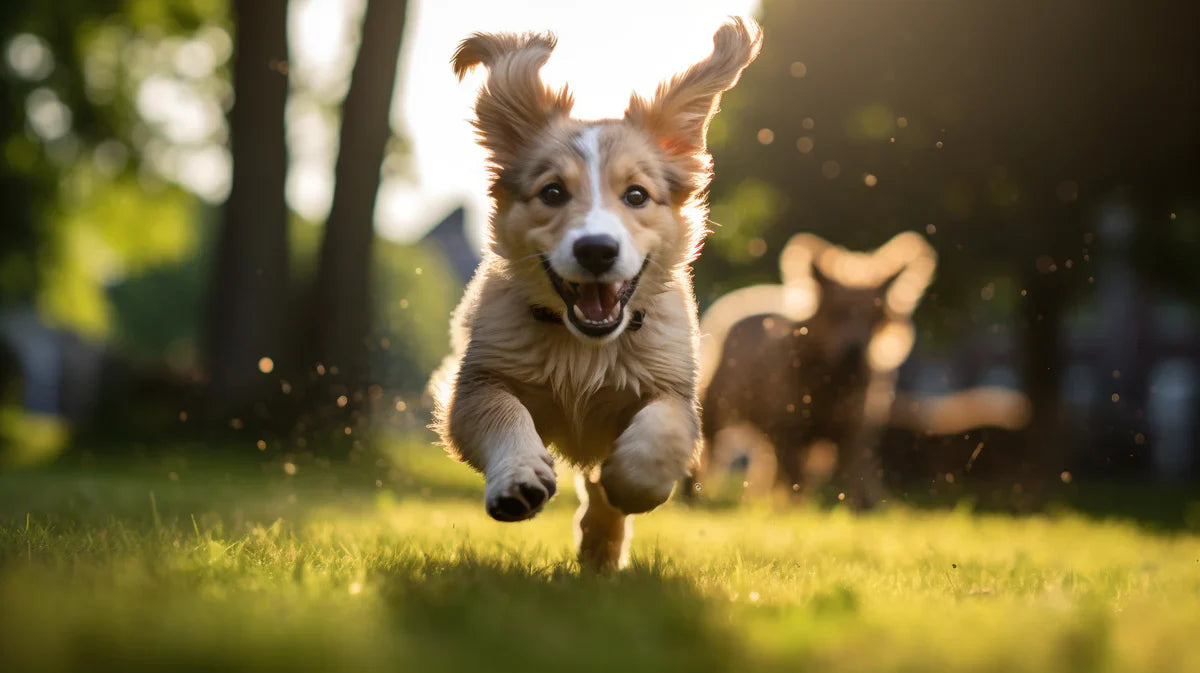The Hardest Dogs to Train: A Guide for Dog Owners
Introduction
Owning a dog is a rewarding experience, but it comes with its fair share of challenges, especially when it comes to training. While some dogs are quick learners and eager to please, others can be a bit more challenging to train. In this article, we will explore the topic of the hardest dogs to train, providing insights into why certain breeds can be more stubborn or independent, and offering tips for successful training.
Understanding Dog Breeds
Not All Dogs Are Created Equal
It's essential to acknowledge that not all dogs are created equal when it comes to trainability. Some breeds have been selectively bred for specific traits, and these traits can influence their trainability.
Factors Affecting Trainability
A dog's trainability is influenced by a multitude of factors, and a comprehensive understanding of these elements can significantly enhance your training efforts. Let's delve deeper into the key factors that impact your dog's ability to learn and follow commands:
-
Intelligence: Dogs vary in intelligence levels, even within the same breed. Highly intelligent dogs tend to grasp new concepts and commands more quickly. Breeds like Border Collies and Poodles are renowned for their high intelligence and problem-solving abilities. Understanding your dog's intelligence level can help you tailor your training approach, ensuring it's neither too basic nor too complicated for them.
-
Temperament: A dog's temperament plays a vital role in training. Some dogs are naturally more eager to please and obedient, while others may be more headstrong or independent. It's essential to consider your dog's temperament when choosing training methods. For instance, a gentle and patient approach may be more effective for a timid dog, while a confident and consistent approach may be necessary for a more dominant one.
-
Instincts: Dogs have inherited instincts that can affect their response to training. For example, herding breeds like Australian Shepherds have a strong herding instinct, which can manifest as nipping at heels or trying to control the movement of people or objects. Recognising and working with these instincts can be crucial for successful training.
-
Age and Learning Stage: The age of your dog can also impact trainability. Puppies are generally more adaptable and open to learning, making it an ideal time to begin basic obedience training. However, older dogs can still be trained effectively with patience and the right techniques.
-
Health and Well-being: A dog's physical and mental health can affect their ability to learn. A healthy, well-exercised dog is more likely to be focused and receptive during training sessions. Ensure your dog's basic needs, including nutrition, exercise, and mental stimulation, are met for optimal training outcomes.
By taking these factors into account, you can tailor your training approach to suit your dog's unique characteristics, making the process more effective and enjoyable for both you and your furry companion.
The Top 5 Hardest Dogs to Train
The Independent Thinkers
Certain breeds are notorious for their independent nature, making them more challenging to train.
Siberian Husky
Siberian Huskies are beautiful and intelligent dogs, but their independent streak can make training a bit of a challenge. They are known for testing boundaries and may require a patient and consistent trainer.
Afghan Hound
Afghan Hounds are elegant and aloof dogs that tend to have a mind of their own. They may not always see the point of following commands, so training them requires creativity and persistence.
Basenji
Basenjis are known as the "barkless" dogs, but their silence doesn't mean they are easy to train. Their strong-willed nature and tendency to do things their way can frustrate novice trainers.
Chow Chow
Chow Chows are loyal and protective, but their strong personalities can make them challenging to train. They need an owner who can establish themselves as the leader without resorting to harsh methods.
Shiba Inu
Shiba Inus are charming and independent, often displaying a cat-like aloofness. Their intelligence can sometimes lead them to outsmart their owners, making training a fun but challenging endeavour.
Effective Training Strategies
Tips for Training Challenging Breeds
Training challenging breeds requires a unique approach. Here are some strategies to help you succeed:
Consistency is Key
Consistency is the cornerstone of successful dog training, and it becomes even more critical when dealing with breeds that may be a tad stubborn. Here's why consistency matters and how to implement it effectively:
Why it Matters: Dogs thrive on routine and predictability. When you consistently enforce rules and expectations, your dog learns what is expected of them. This reduces confusion and anxiety, leading to a more receptive and obedient pet.
How to Implement It: Establish a daily training routine that includes regular sessions for obedience and commands. Use the same cues and commands consistently, and ensure that all family members follow the same rules. Avoid mixed messages or exceptions to the rules, as these can confuse your dog.
Positive Reinforcement
Positive reinforcement is a powerful tool in your training arsenal. By rewarding good behaviour, you can motivate your dog to continue making the right choices. Here's how to harness the power of positive reinforcement:
Why it Matters: Dogs are more likely to repeat behaviours that result in positive outcomes. By offering treats, praise, or affection when your dog follows a command or exhibits desirable behaviour, you create a strong incentive for them to continue doing so.
How to Implement It: Always have a stash of small, tasty treats handy during training sessions. Immediately reward your dog with a treat and enthusiastic praise when they perform the desired action. Consistency is key here too; reward the behaviour you want to encourage every time you see it.
Professional Help
Sometimes, despite your best efforts, you may encounter challenges in training your dog. Seeking professional help is a wise decision in such cases. Here's why and when to consider professional assistance:
Why it Matters: Professional dog trainers have the experience and knowledge to address complex behavioural issues effectively. They can identify the root causes of problems and tailor a training plan that suits your dog's unique needs.
When to Consider It: If your dog displays severe behavioural problems, aggression, or is unresponsive to your training efforts, it's time to consult a professional trainer. Additionally, if you're a first-time dog owner or feel overwhelmed, a trainer can provide guidance and support.
Remember, every dog is different, and what works for one may not work for another. Being consistent, using positive reinforcement, and seeking professional help when needed are essential strategies to ensure a harmonious and well-behaved furry companion.
Conclusion
In conclusion, while some dog breeds are more challenging to train than others, with the right approach and patience, you can successfully train even the most stubborn dogs. Remember that each dog is unique, and it's essential to tailor your training methods to their individual needs and personality.
FAQs
Q1: Are these breeds suitable for first-time dog owners?
These breeds can be challenging for first-time dog owners. It's advisable to research and be prepared for the specific challenges they present.
Q2: Can these dogs be trained to be obedient?
Yes, with the right training techniques and consistency, these dogs can become obedient and well-behaved companions.
Q3: Are there any exceptions within these breeds?
Yes, there can be exceptions within each breed. Some individuals may be more trainable than others, regardless of their breed.
Q4: What is the best age to start training a dog?
It's best to start training dogs at a young age, ideally as puppies. However, older dogs can also learn new tricks with patience and dedication.
Q5: Should I consider a different breed if I'm a novice dog owner?
If you're a novice dog owner, you might want to consider a more trainable breed to start with, as it can make the training process smoother and more enjoyable.











